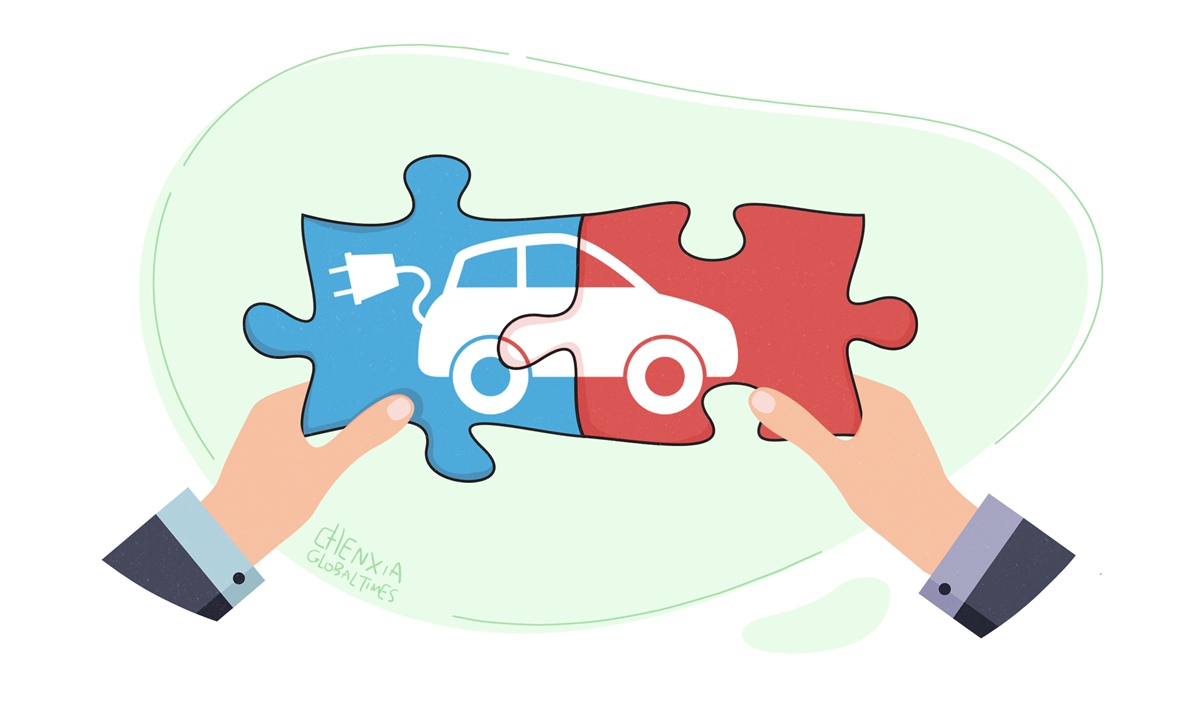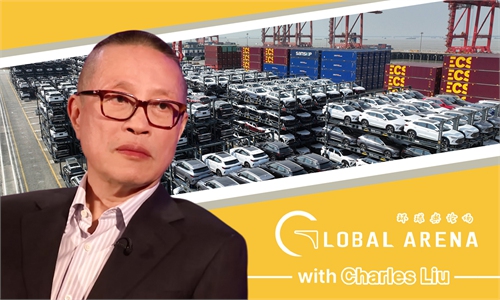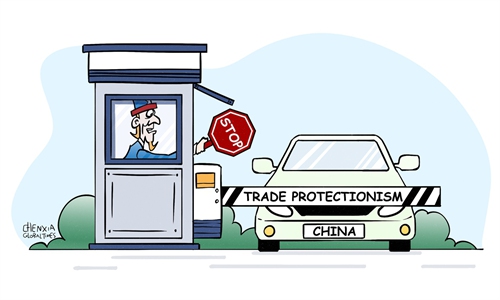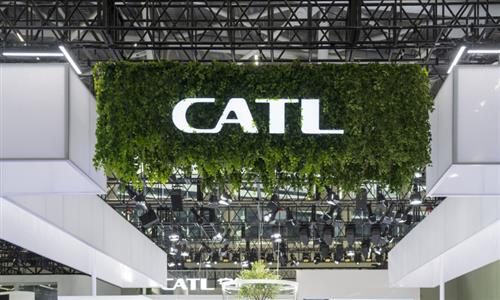
Illustration: Chen Xia/Global Times
At a time when some in Washington persist in translating concerns about China's technological advances into protectionist sanctions, the latest partnership between Contemporary Amperex Technology Co (CATL) and Tesla is a refreshing case that exemplifies the mutual benefits stemming from technological and industrial development in both countries.CATL is working on batteries that charge faster for Tesla and supplying machinery to its factory in the US state of Nevada, CATL Chairman Robin Zeng said in an interview with Bloomberg News on Monday.
The Chinese electric vehicle (EV) battery giant is also in talks with Tesla and other unidentified automakers to license its battery technology in the US, instead of building its own plant there, according to a report by The Wall Street Journal on Monday.
As the world's leading lithium-ion battery manufacturer, CATL's collaboration and discussions with Tesla clearly provide a strong endorsement of China's prominent role in battery technology.
More importantly, despite ongoing concerns in the US regarding the dependence of American automakers on Chinese companies for battery technology, the fact that companies in both countries are still seeking ways to work together to promote industrial development is a prime example of how technology cooperation between China and the US is essentially a mutually beneficial relationship.
With the increasing popularity of new-energy vehicles globally, there is growing awareness among industry players about the pivotal role of batteries in EVs. It is now considered as the essential to EVs' competitiveness and sales performance. Batteries typically represent 30-50 percent of the total cost of an EV and play a direct role in determining a car's performance and how long it will last.
Most US-built EVs use lithium-ion batteries produced by Chinese, Japan and South Korean companies like CATL, Panasonic and LG. Given current industry trends, it is unlikely that the US will experience a rapid increase in its domestic battery production capacity in the near future, which will be a drag on US efforts to boost its EV industry.
By contrast, Chinese battery makers have shown strong competitiveness in this area thanks to their advantages in technological innovation, capacity expansion and cost efficiency.
In January, Chinese battery companies accounted for 34.2 percent of the total overseas installed capacity of power batteries, indicating their growing share in the global battery market.
In this context, more and more people have realized that the US won't achieve its EV goals without collaboration with China. It is because of such understanding that the battery industry in the US has been increasingly interested in cooperation with Chinese companies.
Of course, there are challenges to such cooperation. For instance, Ford said in November 2023 that it would scale back the investment for its Michigan battery plant to produce low-cost lithium-ion batteries based on technology licensed by CATL following pushback from US lawmakers.
Some US politicians and public opinion often believe that Chinese companies make money unilaterally from technological cooperation with the US, while more and more facts show that for US companies to be more profitable, they need the support of ever-advancing Chinese technology. Such a biased view has led to protectionist policies and legislative activities that have hindered the development of Chinese companies and harmed the competitiveness of US companies.
While the US has historically held a technological edge in many fields, China's rapid economic growth and increased investment in science and technology have propelled it to the forefront of innovation in various sectors. This progress not only garners international recognition for Chinese companies but also creates new opportunities for global partnerships.
Collaborations like the one between CATL and Tesla exemplify the potential for high-tech cooperation between the two countries, offering a pathway to jointly addressing pressing global challenges such as climate change and energy security.
As Chinese technology continues to advance, the confidence of US politicians to decouple from Made-in-China will weaken bit by bit as more facts will show them that in terms of industrial development, companies in both countries rely on each other for mutual progress.



